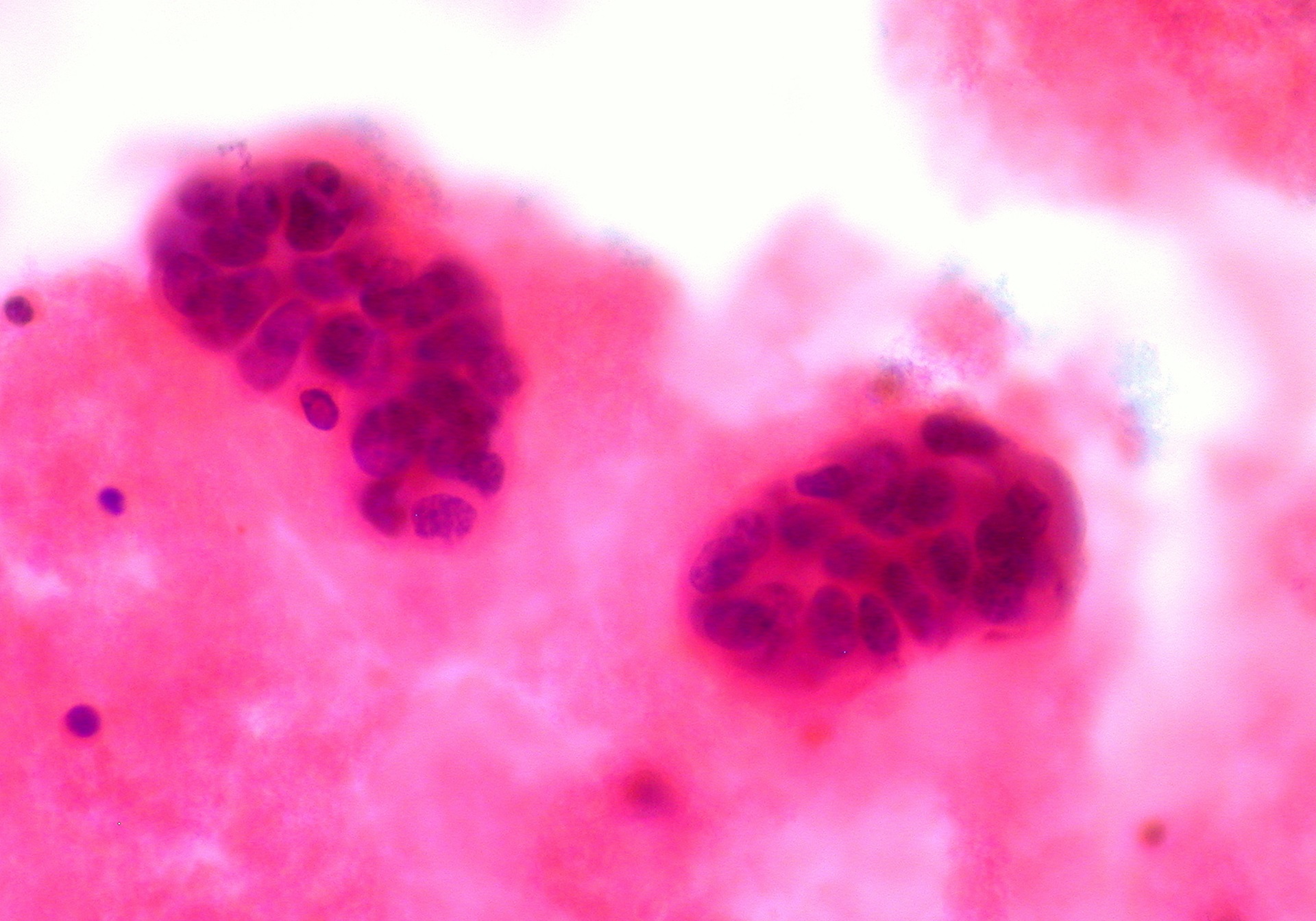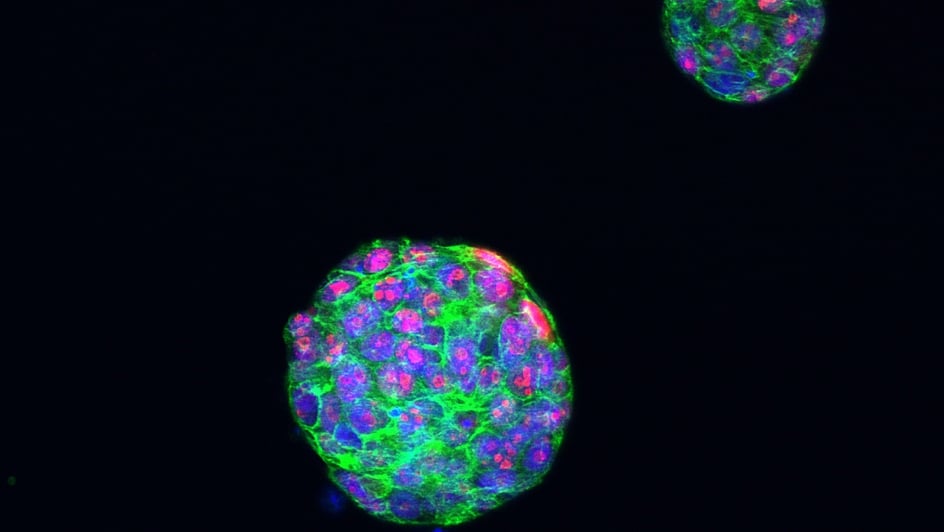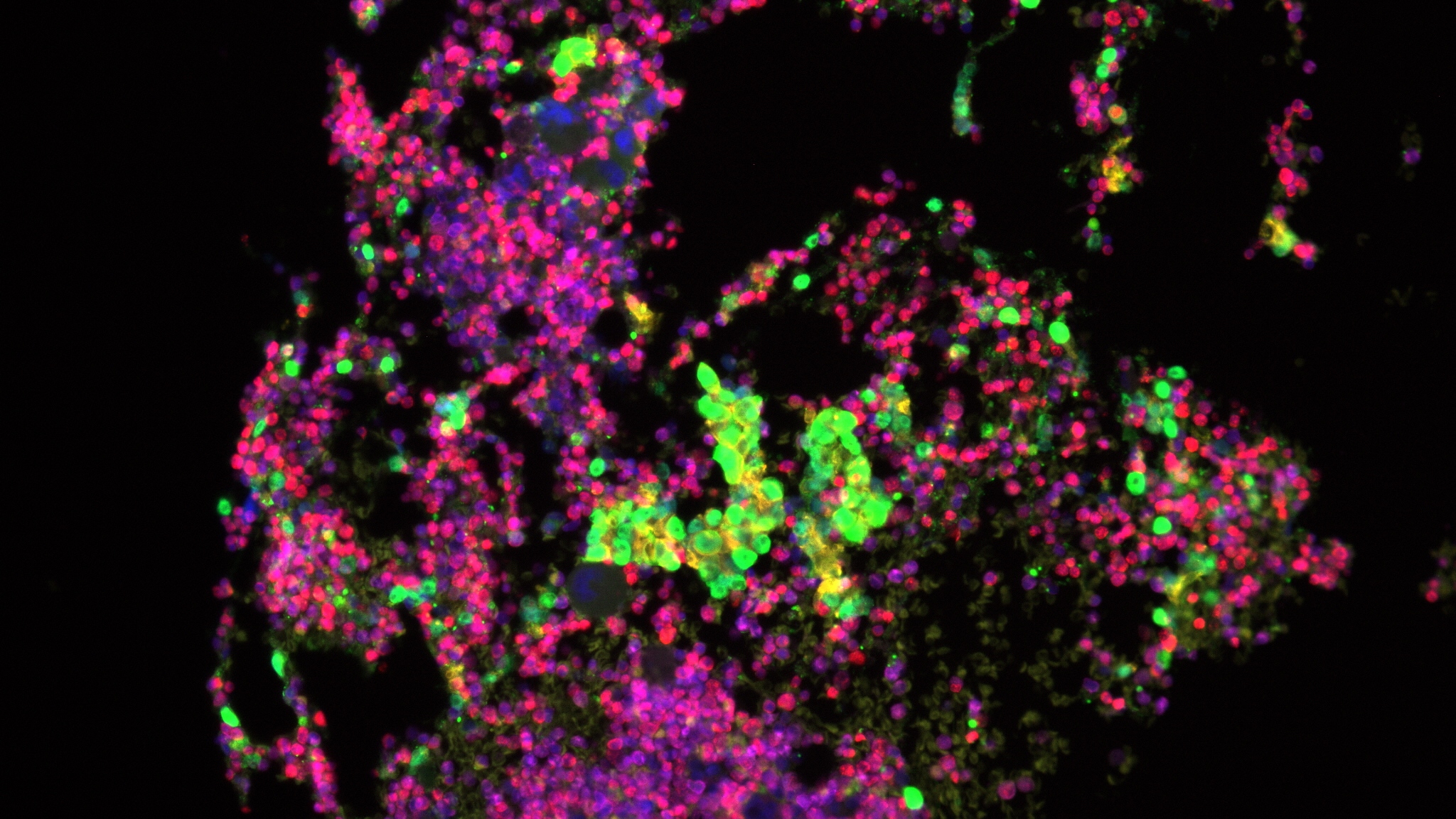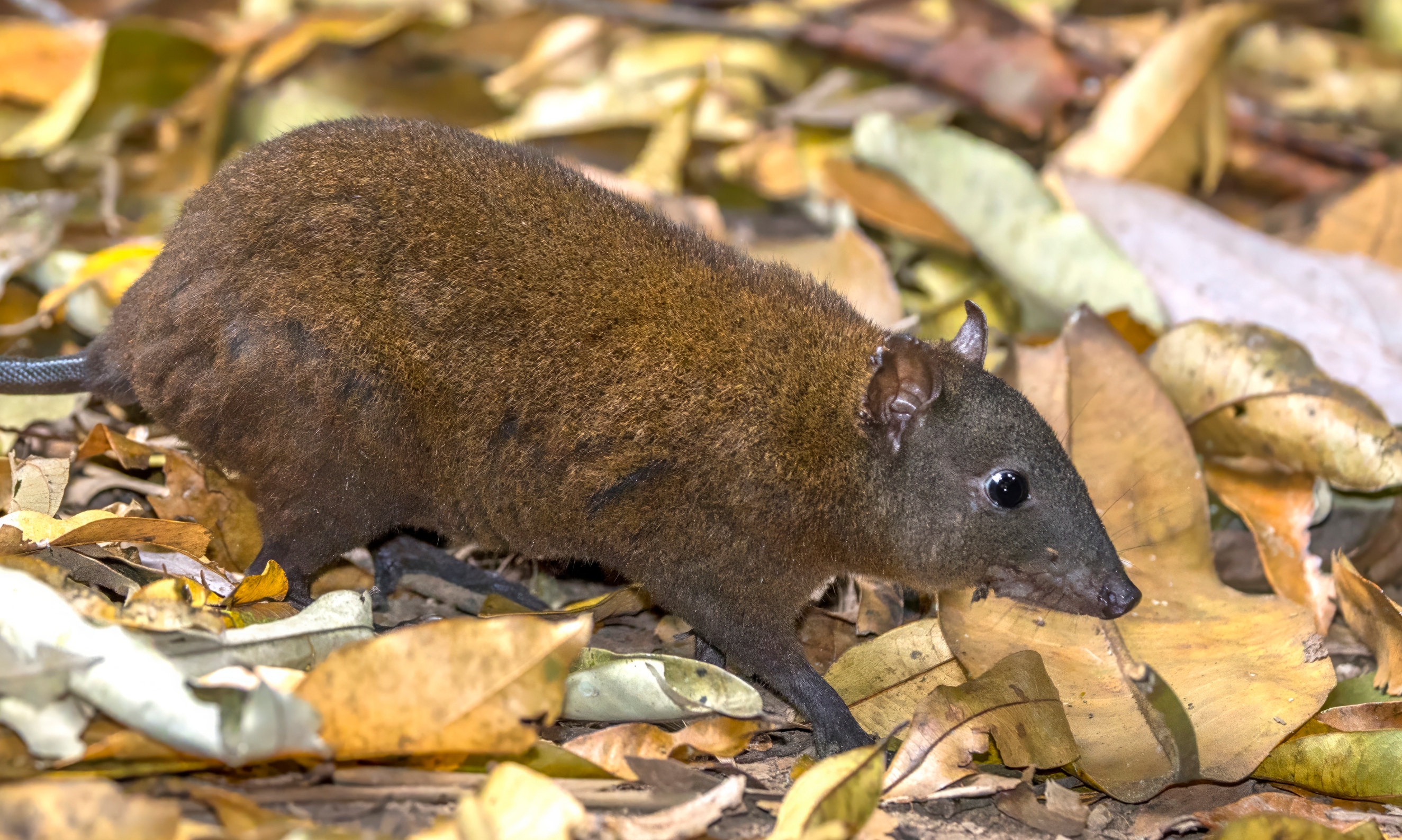The Generations Study
The Generations Study is a longitudinal cohort study established in 2004 involving 110,000 adult women living across the UK. The cohort collects extensive high-quality data to study the continuum of breast cancer, from causes to outcomes. Through this research we are learning how to prevent breast cancer, detect it early and improve quality of life and survival after diagnosis.
More than 110,000 women were recruited from across the UK from 2004 to 2011. The study collects extensive, high-quality data through participant recruitment and follow up questionnaires; blood samples; NHS electronic medical records, biopsy material and medical imaging; and analyses of blood, tissue and urine specimens. For more details or for Data Access Requests, please visit the Generations Study Website.
Professors Amy Berrington and Montserrat Garcia-Closas are the Principal Investigators of the Generations Study. Other senior researchers include Professor Olivia Fletcher and Dr Michael Jones. The study team includes epidemiologists, biostatisticians, data scientists, laboratory scientists, data engineers, data managers, and scientific administrators.
The study is supported by a partnership between The Institute of Cancer Research and Breast Cancer Now.
Scientific aims
The scientific goal is to understand the continuum of breast cancer, from causes to outcomes. In addition, the study can help understand the causes and prognosis of other cancers and diseases in women.
Research by the study team and collaborations with thousands of UK and international researchers has resulted in more than 100 scientific publications. This work has contributed to a better understanding of genetic, reproductive, behavioural and environmental causes of breast cancer. In addition, it has shown how integration of these factors into multimodal risk models substantially improves our ability to identify of women at high risk for developing breast cancer.
Current research priorities include:
- Better Breast Cancer Risk Tools: improve tools for predicting breast cancer risk by adding the latest discoveries like genetic scores, AI analyses of mammograms and social and environmental factors. This will help women receive more personalised and effective care.
- Lifestyle changes and Breast Cancer Prevention: investigate how changes in lifestyle such as increasing physical activity can reduce the risk of breast cancer and improve survival after a breast cancer diagnosis. This will help women make informed choices to protect their health.
- AI Analyses of Breast Tissue: use AI analyses of breast tissue samples to help us find out what types of benign breast disease are linked to a higher risk of developing breast cancer. This will help women with benign breast diseases to understand their risk and take preventive measures.
- Securely Share Generations Study Data: make the Generations Study data securely available to the wider research community to enhance cancer research. This will accelerate discoveries and improve outcomes for women.
Population, Data and Biospecimens
Participants in the Generations Study provide data through questionnaires and most provided a baseline blood sample to study genetics and other biomarkers. A subset of participants have worn physical activity monitors (for 8 days at a time) and some have provided urine samples. Medical data, specimens and imaging is obtained through requests and data linkages to NHS medical records.
At recruitment, half of the cohort were between the ages of 45-64 (49%), with 42% of the cohort younger and 9% older. 43% of the cohort lived in Southern England with 89% of the cohort being from England as a whole. The rest of the cohort lived in Wales (4%), Scotland (7%), and Northern Ireland (1%). Compared to the national population, the cohort has an overrepresentation of women with higher socio-economic status, White ethnicity, and those residing in Southern England. To ensure the applicability of research findings to more diverse populations across the UK, comparisons with national data and other cohorts are conducted.
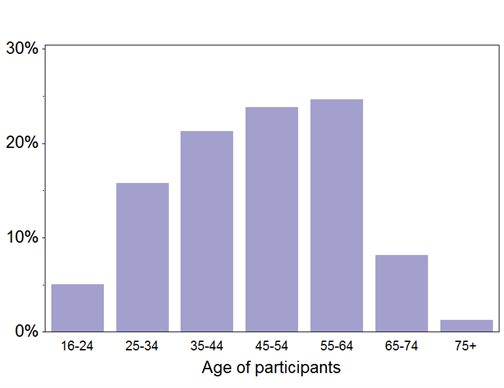
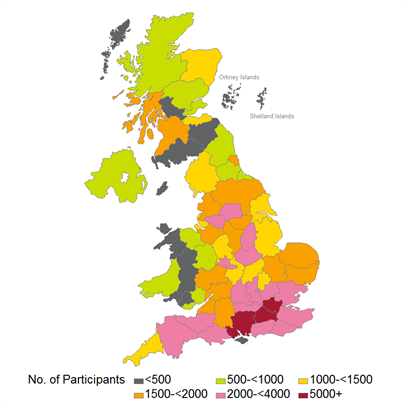
Figure: Map shows the geographical distribution of the study members across the United Kingdom.
Participants completed a baseline questionnaire and provided a blood sample at the time of enrolment. Since then, they have been asked to fill out follow up questionnaires every 2-4 years. Through the questionnaires, participants provide information on demographic, reproductive, behavioural/lifestyle, anthropometric, environmental, and medical factors. Subsets of participants also provided a urine sample or physical activity data by wearing activity monitors. In addition, the study team collects medical data, biopsy specimens and imaging from participant’s NHS medical records through special requests and data linkages.
Participant engagement and involvement
Participant engagement and involvement are crucial elements in the success of the study. A Participant Panel with study representatives provides feedback and contributes to the development of new research initiatives.
Beyond this formal structure, participants remain actively involved through various channels. Regular newsletters keep them informed about study progress and findings, while also providing a platform for them to share their experiences. Email and phone communications provide direct lines for participants to ask questions and provide valuable feedback. This two-way communication ensures that participants are kept up-to-date and also feel a personal connection to the study, enhancing their commitment and the overall quality of the research.
For more details, please visit our website:
Generations Study Website
Researchers
Professor Amy Berrington
Group Leader:
Clinical Cancer Epidemiology
Professor Amy Berrington is an expert in the use of real world data to study the late-effects of cancer treatments, medical radiation exposures and other medications and is leading major studies in this field in breast and childhood cancer survivors. She is a member of multiple national and international advisory boards and is currently Vice-Chair of the US National Academy of Science Nuclear and Radiation Studies Board.
Professor Montse Garcia-Closas
Group Leader:
Integrative Cancer Epidemiology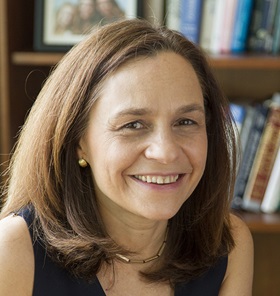
Professor Montserrat Garcia-Closas is physician epidemiologist expert in genetic susceptibility, etiologic heterogeneity, and risk prediction for breast cancer. She co-leads the Cancer Epidemiology and Prevention Unit at ICR and Imperial College, and is a member and leader of several large international consortia in cancer epidemiology.
Professor Olivia Fletcher
Group Leader:
Functional Genetic Epidemiology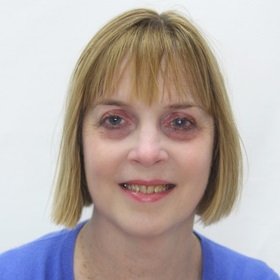
Professor Olivia Fletcher leads a group of genetic epidemiologists and molecular biologists working on the Generations Study, the British Breast Cancer Study and other population-based studies. She also took over leadership of the Complex Trait Genetics group from Dr Nick Orr in July 2017.
Dr Michael Jones
Senior Staff Scientist:
Clinical Cancer Epidemiology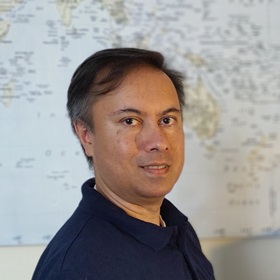
Dr Michael Jones is a senior staff scientist in the Division of Genetics and Epidemiology, where he is working on the Breast Cancer Now Generations Study. His main research interests are in the design and analysis of complex large epidemiological studies.
Dr Daniel Adams
Epidemiology Research Fellow:
Integrative Cancer Epidemiology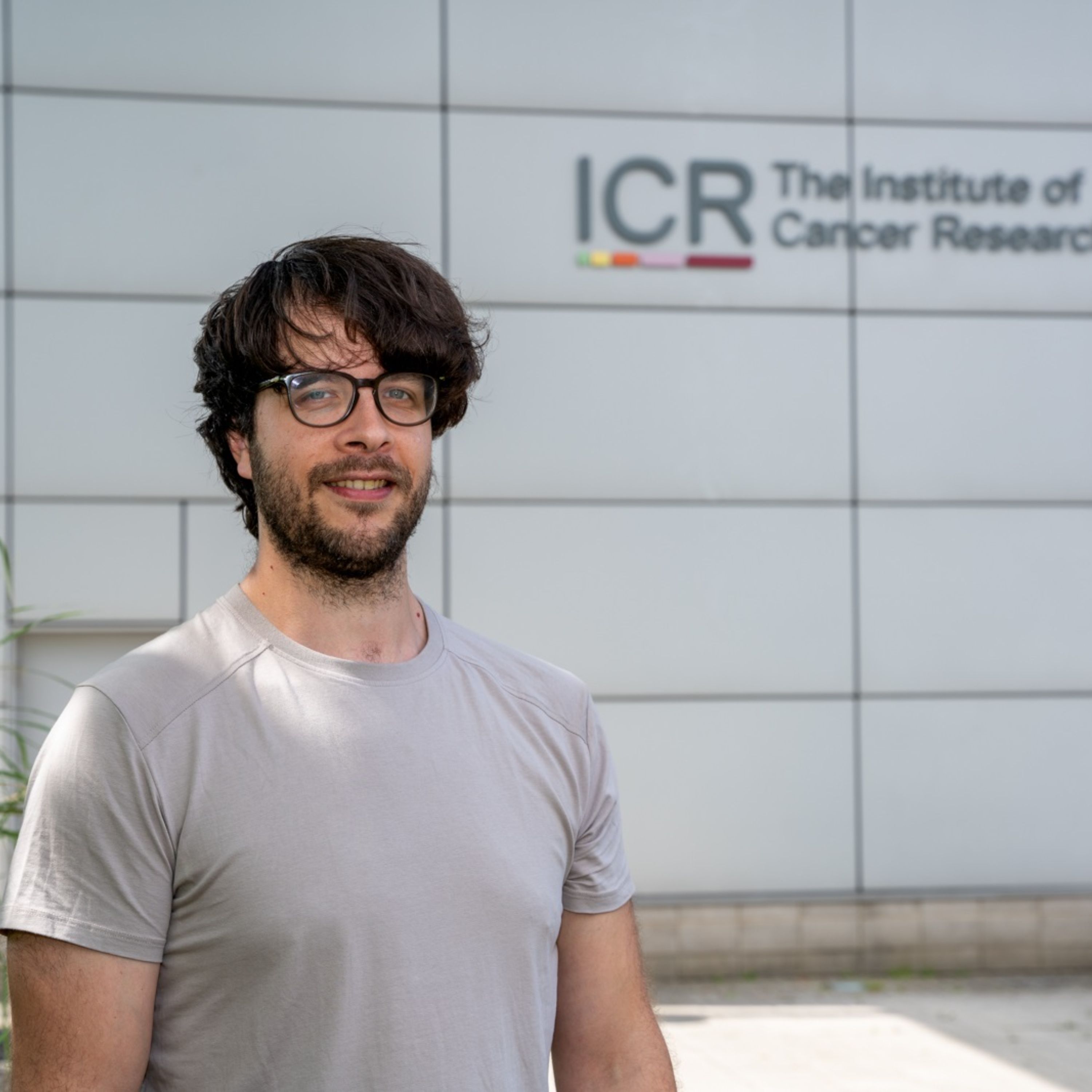
Dr Daniel Adams joined The Generations Study research team in 2023 with Professor Garcia-Closas. A medical doctor by training, Daniel practiced as a General Practitioner in the South of England after obtaining his medical degree from Semmelweis University in Budapest, Hungary. His interest in data science led to a degree in Health Data Analytics and Machine Learning from Imperial College London. At the ICR, Daniel combines his clinical experience and data science training to analyse digital images of breast tissue using AI. He also conducts statistical analyses for breast cancer survival and risk factors.
Ana Ferreira
Higher Scientific Officer:
Integrative Cancer Epidemiology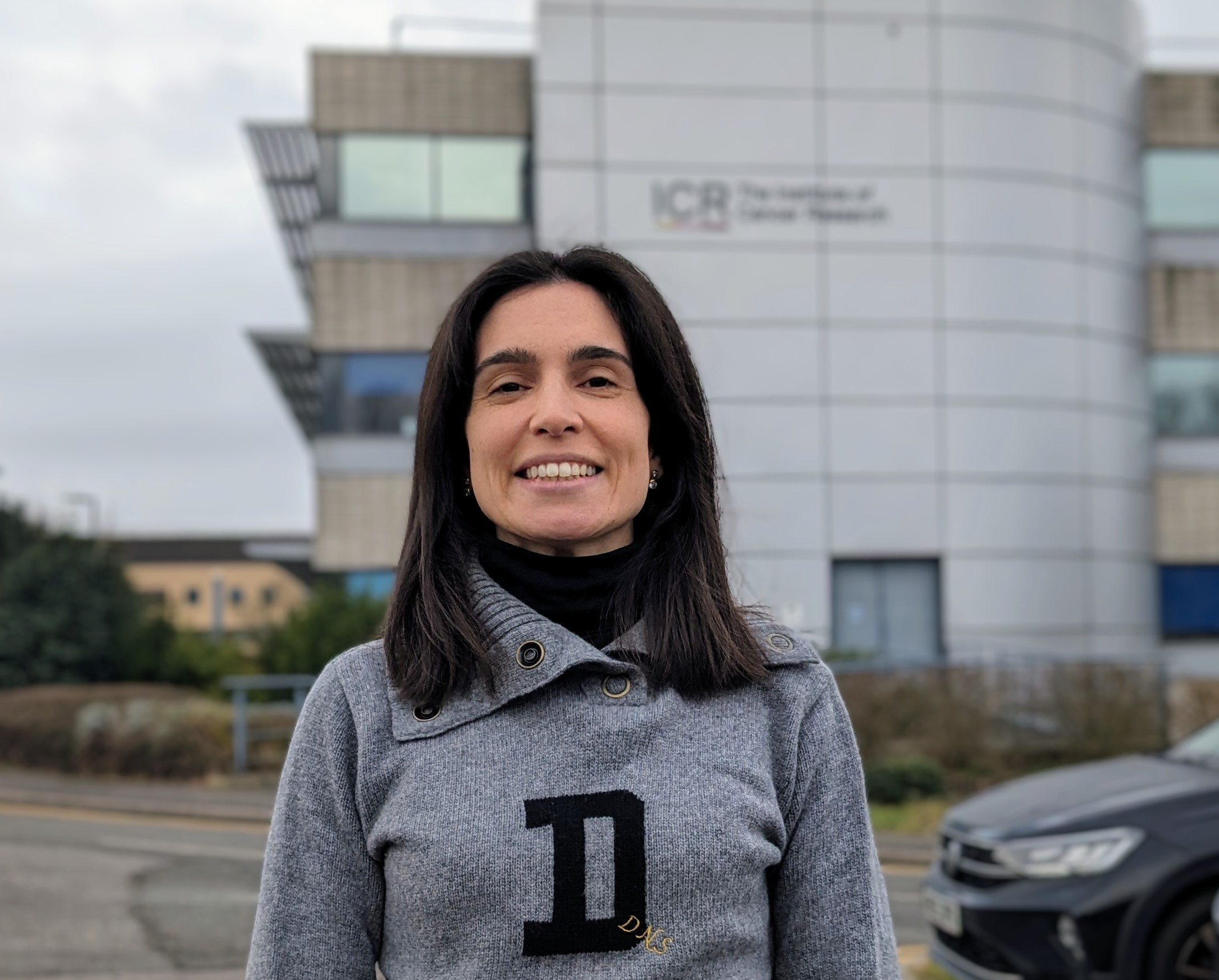
Ana joined The Generations Study research team in 2024 with Professor Garcia-Closas. A biomedical scientist by training, Ana holds a MSc in Experimental Pathology and has worked at the ICR for nearly ten years. She transferred from the Cancer Biomarkers Team where she investigated biomarkers of metastatic prostate cancer for the development of novel cancer therapies. Ana is responsible for the management of biological specimens and digital pathology processes within the study by establishing workflows and quality control metrics for scanning, storing and analysing the tissue slides. These will be used to understand how risk factors are related to different types of breast cancer, and to identify tissue biomarkers of transformation from benign breast disease to breast cancer.
Epidemiology Research Assistants
Reuben Frost
Epidemiology Research Assistant:
Integrative Cancer Epidemiology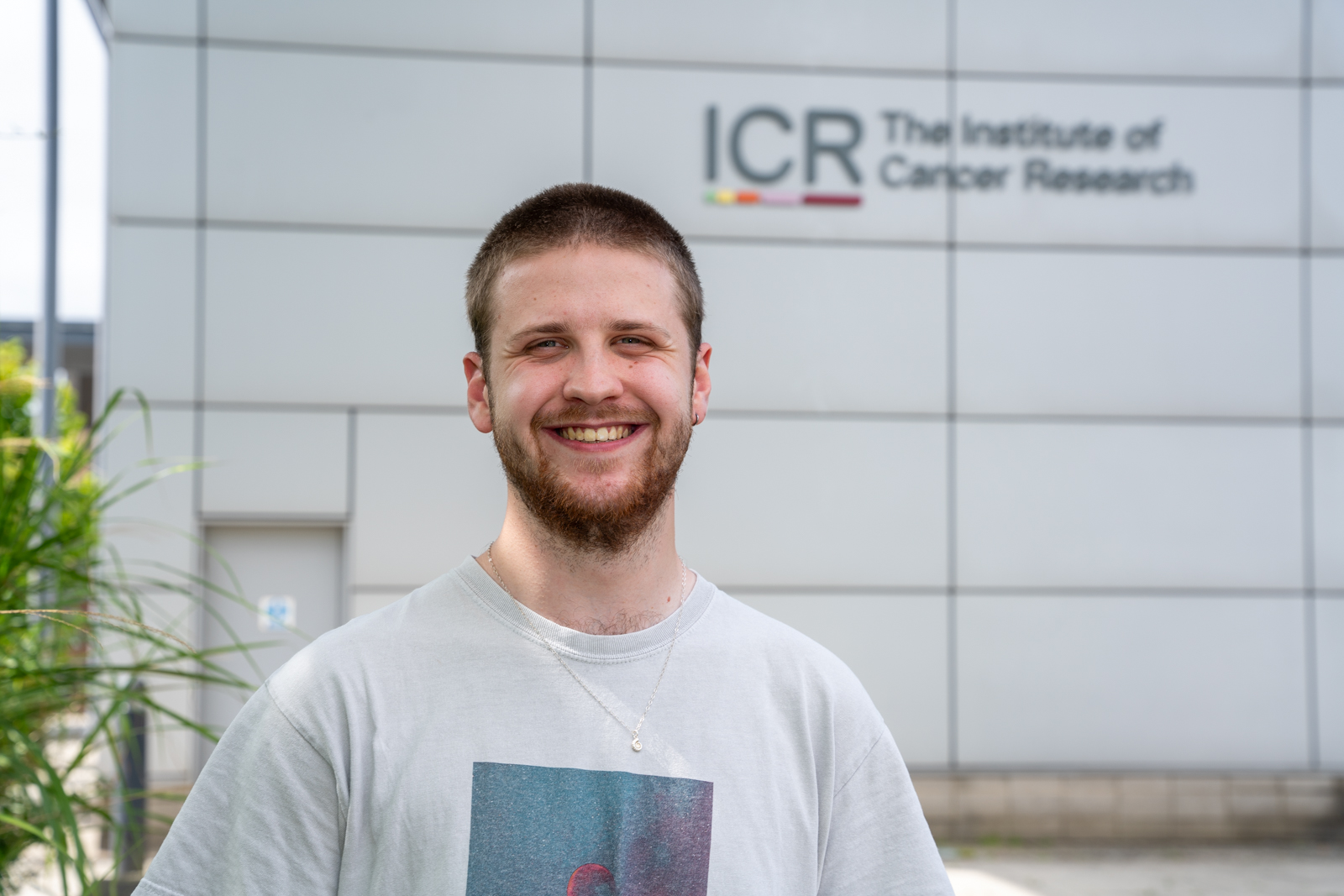
Reuben joined The Generations Study research team in 2023 with Professor Garcia-Closas. Previously, he graduated from University of Oxford with a Masters in Mathematics and Statistics, completing his dissertation utilizing Markov Chain Monte Carlo methods to phase imputed genetic samples. Reuben's research focusses on evaluating the performance of models assessing breast cancer risk, and collaborating with other groups to improve these models. He also works on descriptive epidemiology studies, working to find patterns in cancer rates and risk factors in the UK population with the view of projecting these trends into the future.
Zoey Richards
Epidemiology Research Assistant:
Integrative Cancer Epidemiology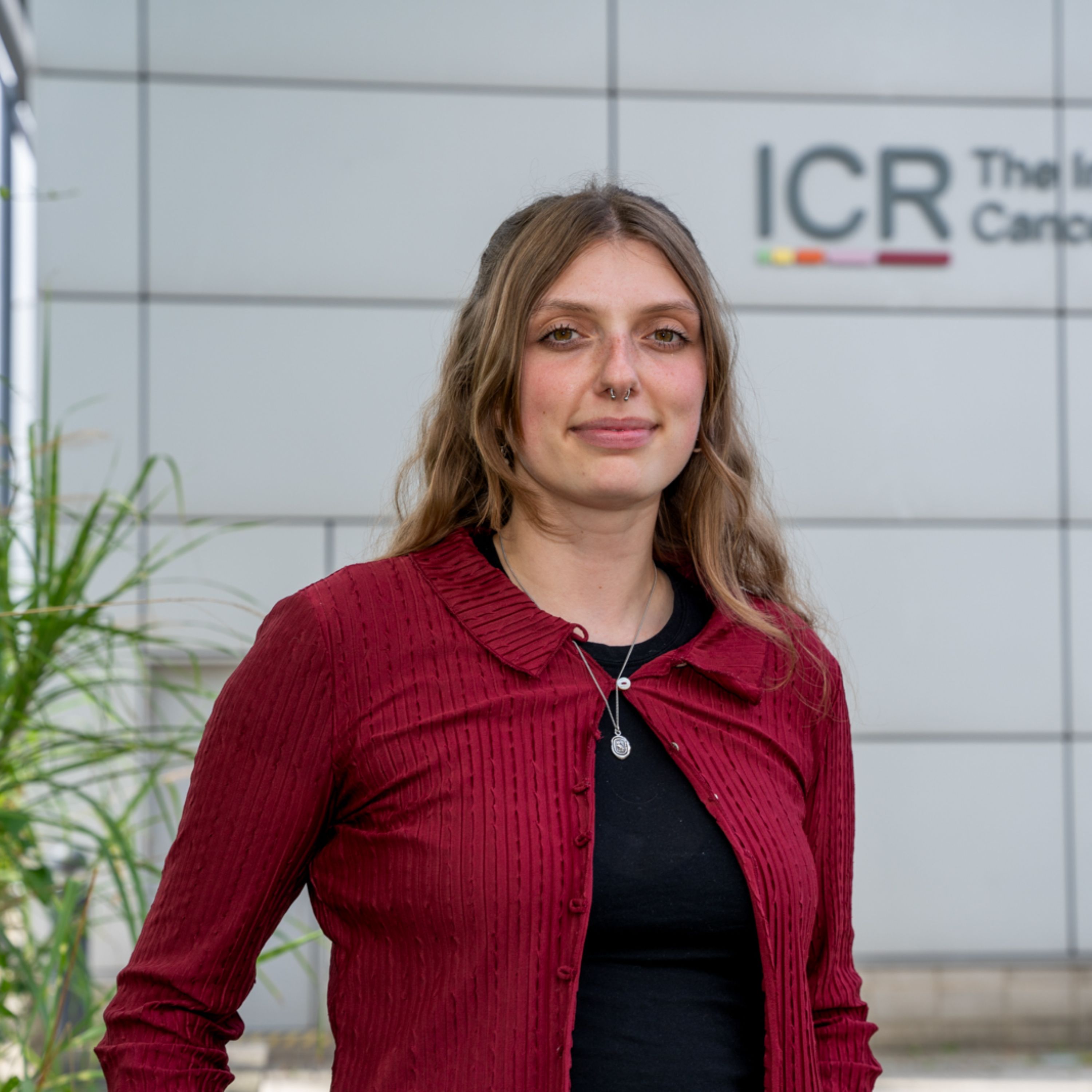
Zoey joined The Generations Study research team in 2024 with Professor Garcia-Closas. She moved into the role after graduating from London School of Hygiene and Tropical Medicine with a MSc in Epidemiology where she wrote her dissertation on how physical proximity to health facilities impacted implant contraceptive use in Senegal. Zoey is working on increasing study access and awareness of the Generations Study. On the research side, she uses geospatial analyses to identify social and environmental risk factors for breast cancer to identify and help address health inequities through public health policy and interventions.
Esmé O'Brien
Epidemiology Research Assistant:
Clinical Cancer Epidemiology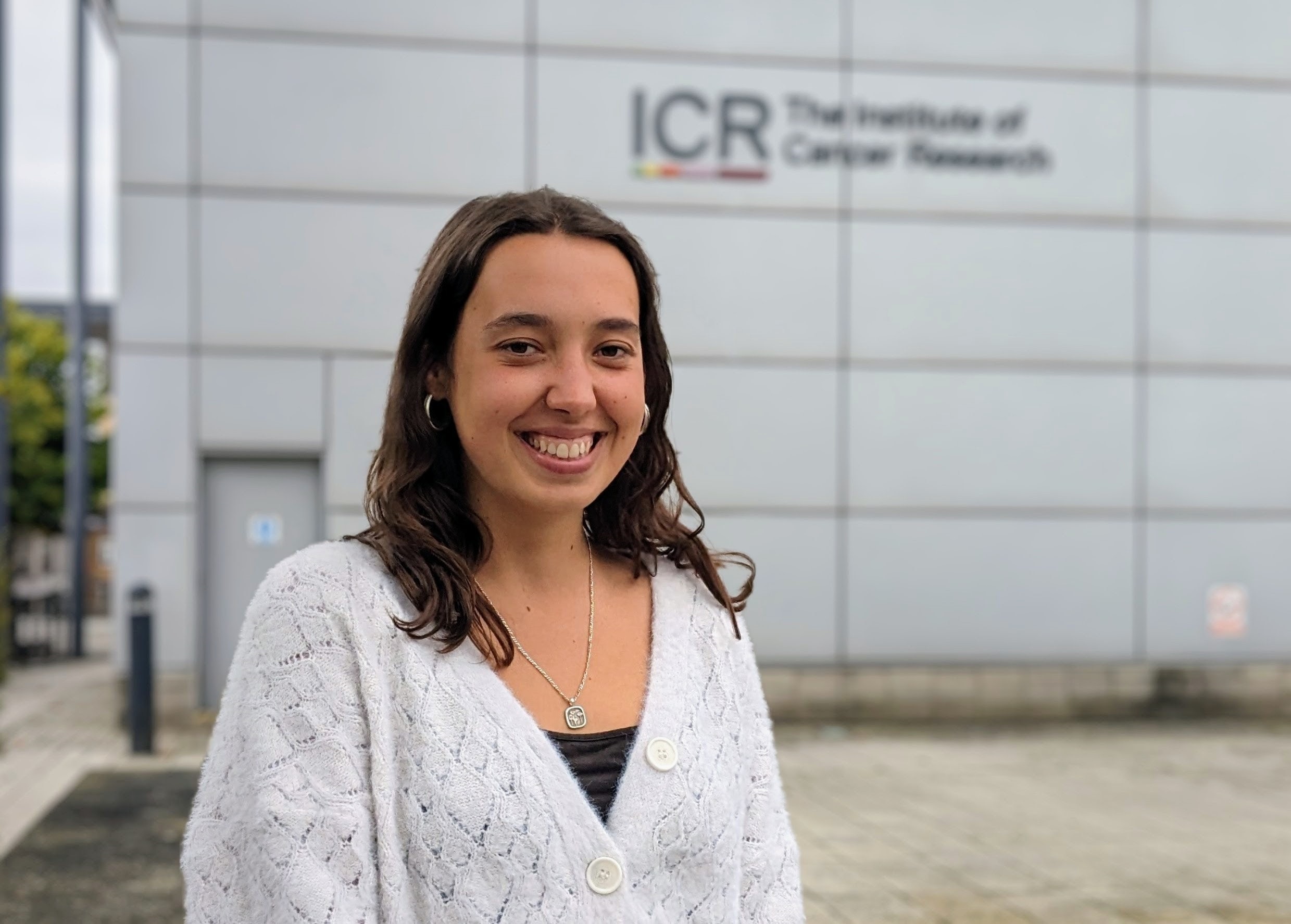
Esmé joined The Generations Study research team in 2024 with Professor Amy Berrington. She came from HEOR, where she worked as a Data Scientist conducting statistical analyses to evaluate the effectiveness, safety and public health impact of new health technologies across a range of disease areas. She completed an MSc in Public Health at the University of Bristol, specialising in the mixed-methods evaluation of trauma-informed approaches to health systems. Esmé’s research focuses on exploring the relationship between pre- and post-diagnosis lifestyle factors and ovarian cancer survival.
PhD Students
Imogen Sawyer
PhD Student:
Clinical Cancer Epidemiology
Imogen joined the Generations Study research team in 2023, shortly after completing her master’s degree in Population Health Sciences from the University of Cambridge. With her background in epidemiology and data analysis, she is now working towards a PhD with Professor Berrington that investigates the late effects of breast cancer treatments. Imogen is dedicated to advancing our understanding of cancer survivorship and improving patient outcomes.
Isobel Jackson
PhD Student:
Clinical Cancer Epidemiology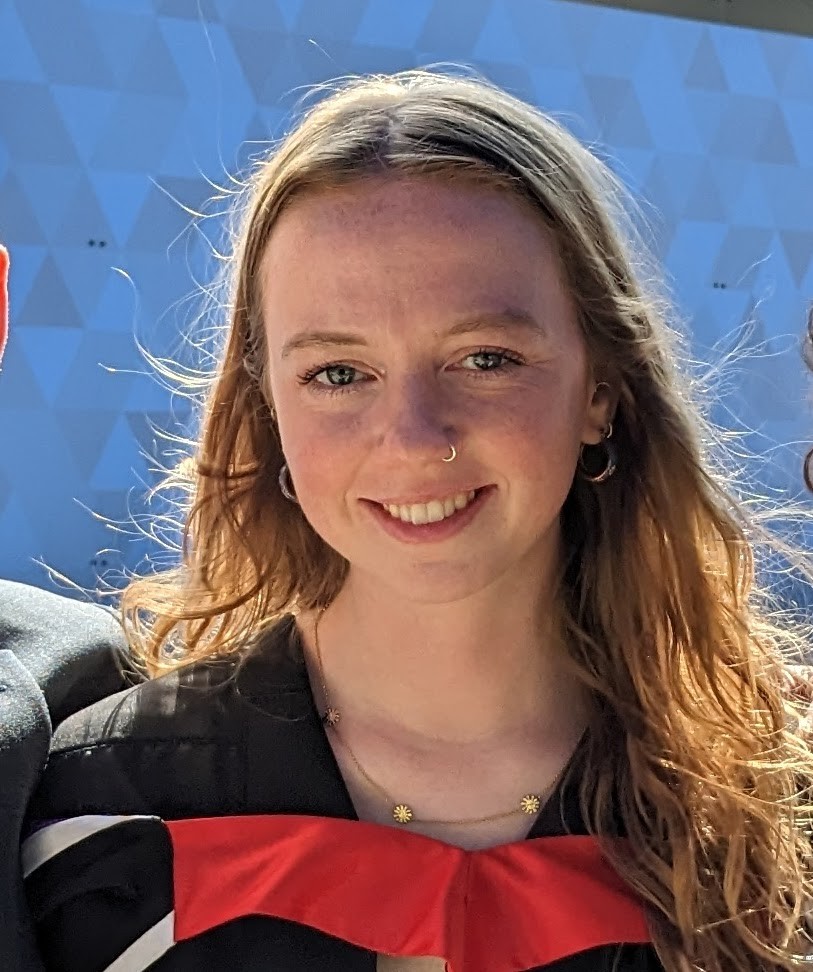
Isobel is a PhD student within the Cancer Epidemiology and Prevention Research Unit (CEPRU), a joint initiative between Imperial College London and the Institute of Cancer Research. Her research is primarily based within the Department of Epidemiology and Biostatistics at Imperial College, supervised by Professor Marc Gunter, Professor Amy Berrington and Dr. Alicia Heath. Isobel’s PhD is focused on temporal changes in modifiable breast cancer risk factors and their association with breast cancer risk in the Generations Study. She previously gained her undergraduate degree in Biological Sciences at the University of Leeds in 2021, with a year-long internship as the Data and Information Intern at Yorkshire Cancer Research. She then received her Master of Public Health (MPH) from Imperial in 2022.
Martina Brayley
PhD Student:
Clinical Cancer Epidemiology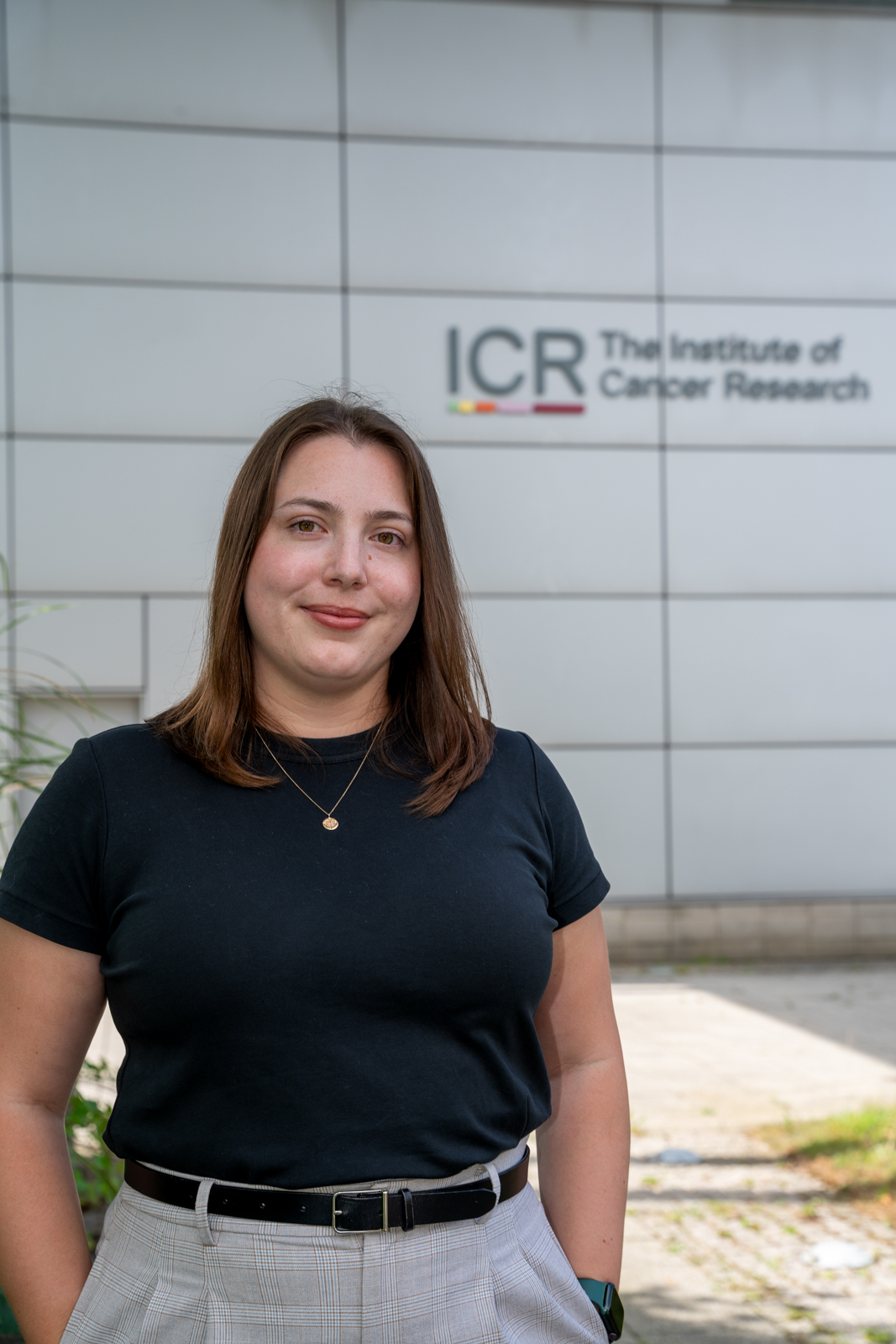
Martina joined The Generations Study research team in 2023 with Professor Berrington. She came from the Department of Health and Social Care, where she worked as a Senior Public Health Intelligence Analyst monitoring the health of the population in England. She has also worked as a Nutrition Scientist in Public Health England, evaluating evidence that supported policy development and public health interventions. She has a background in Nutrition Science and completed an MSc in Epidemiology at the London School of Hygiene and Tropical Medicine in 2020, specialising in lifestyle and environmental risk factors and chronic diseases.
Data engineers and managers
June Palmer
Data Manager:
Integrative Cancer Epidemiology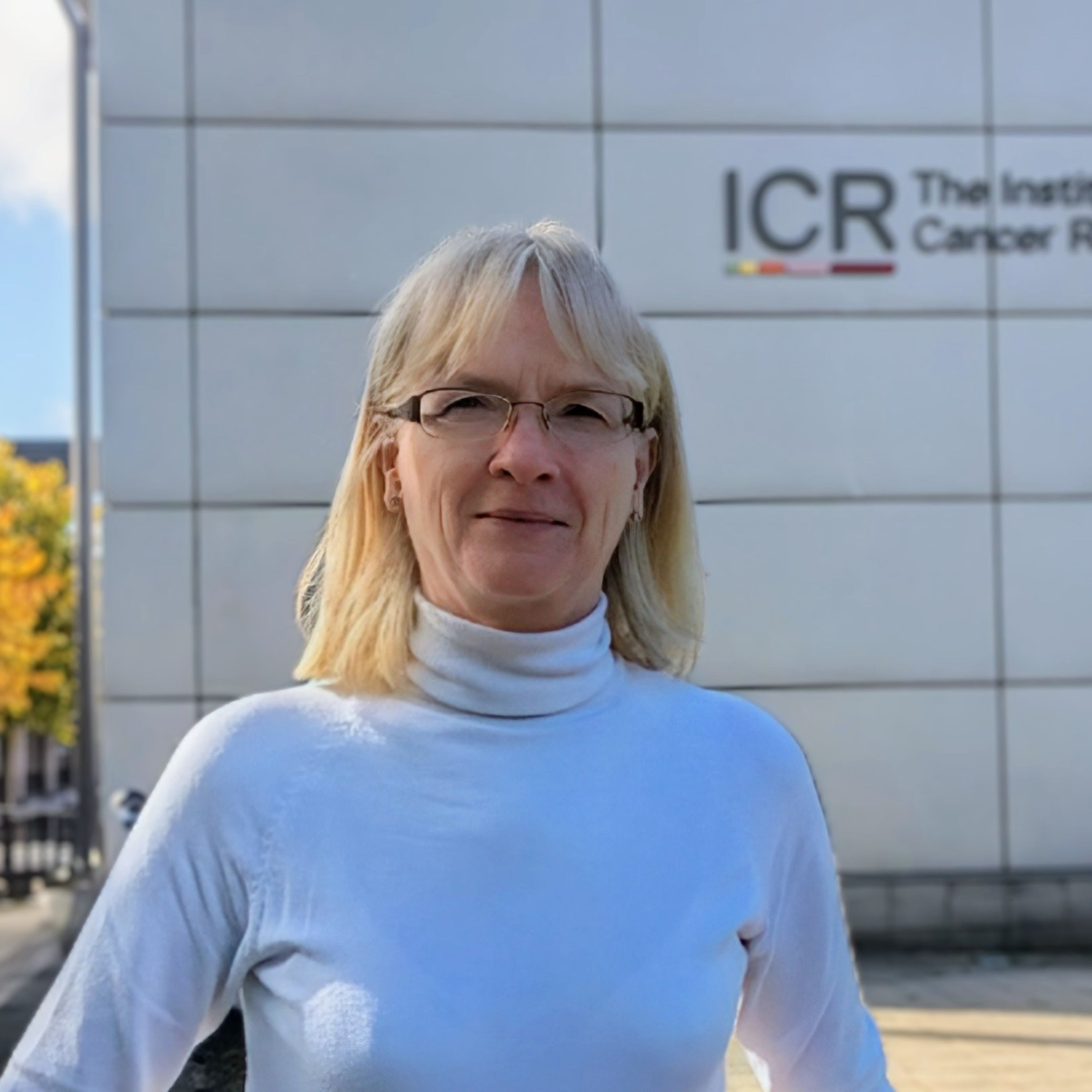
June joined The Generations Study research team in 2016. Her role includes sending and receiving files from organisations such as the NHS and uploading them securely into SQL Server. She helps to implement online questionnaires for the Generations participants. The results are then fed into existing processes for use by the analysts in the team. She regularly extracts the data and pseudo anonymises it for use by outside collaborators.
Penny Coulson
Senior Data Manager:
Integrative Cancer Epidemiology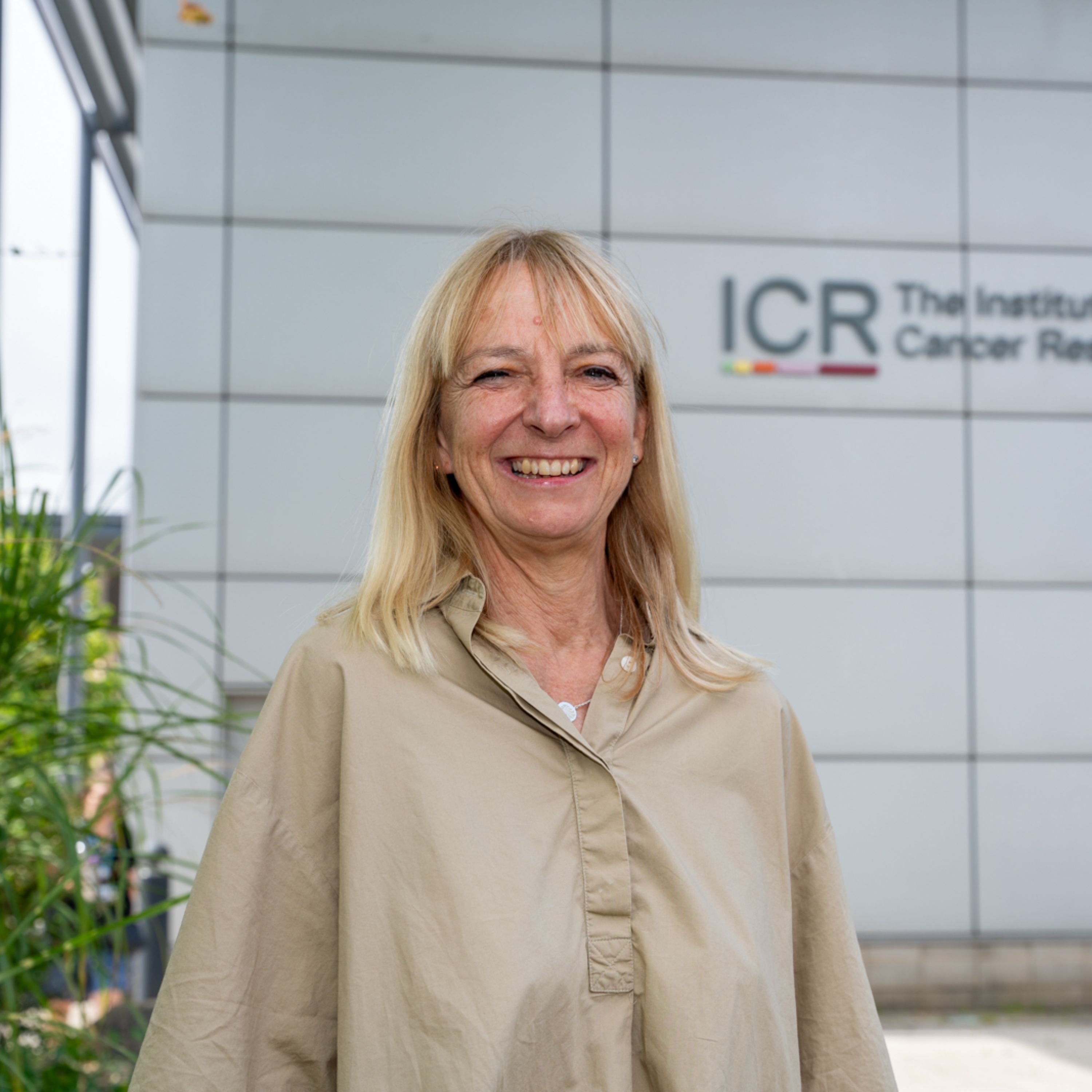
Penny joined The Generations Study research team in 2010 having transferred from being a Study Co-ordinator on the ICR Cancer Screening Evaluation Team. Responsible for managing pathology and mammographic density data among others, Penny understands the entire sample collection management system. She provides operational support for the day-to-day data collection as well as longitudinal cohort data for the research analysts.
Sanjay Hegde
Data Engineer:
Integrative Cancer Epidemiology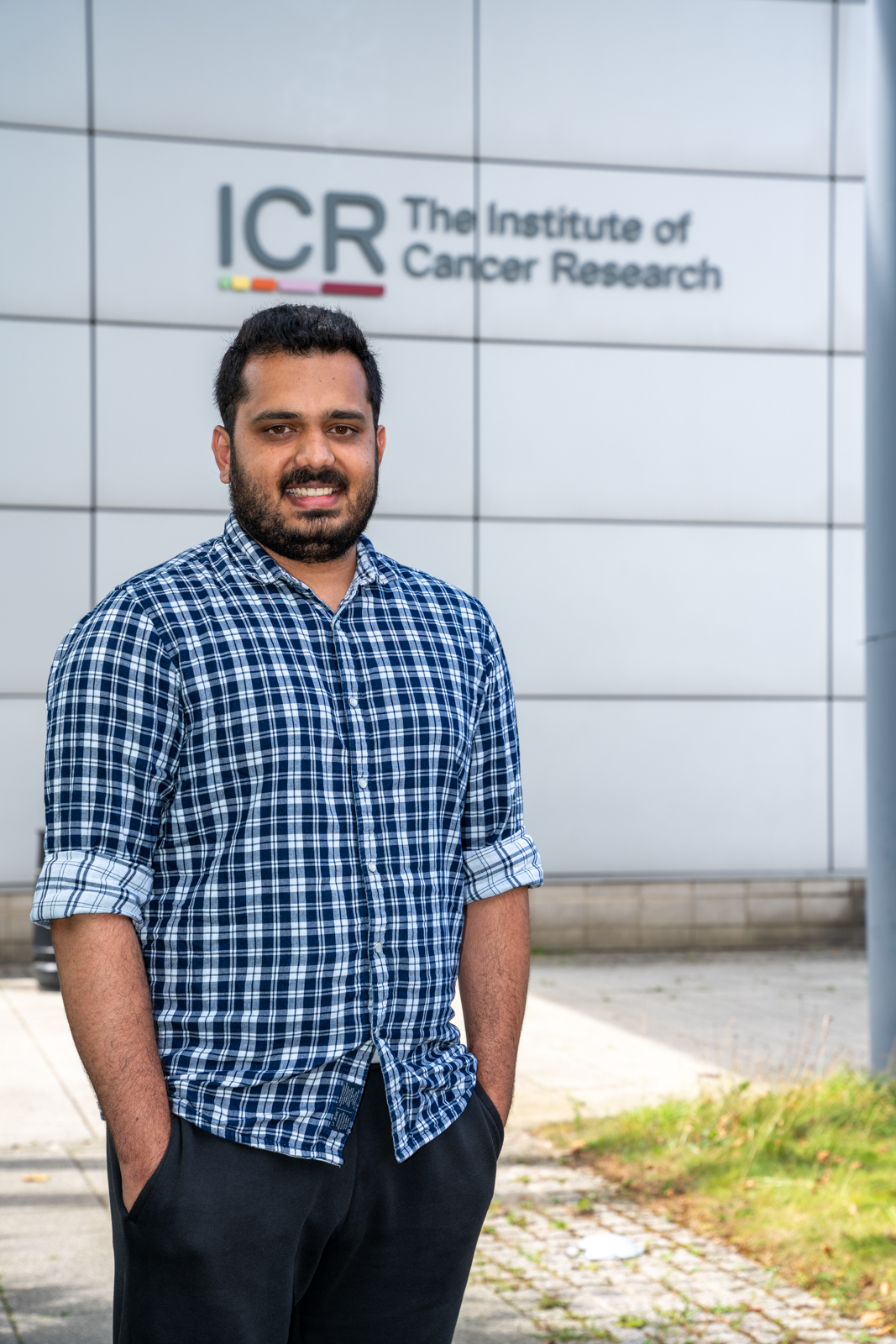
Sanjay joined The Generations Study research team in 2024 working with Professor Garcia-Closas. He holds an MSc in Data Science from the University of Birmingham and has expertise in Python, Spark, SQL, and MS Azure, along with knowledge in Machine Learning and Large Language Models. Currently, Sanjay is engaged in Data Management and Transformation of Generations Study data systems to improve the use of data following FAIR principles.
Tal Cohen
Data Engineer/Wrangler in Epidemiology:
Integrative Cancer Epidemiology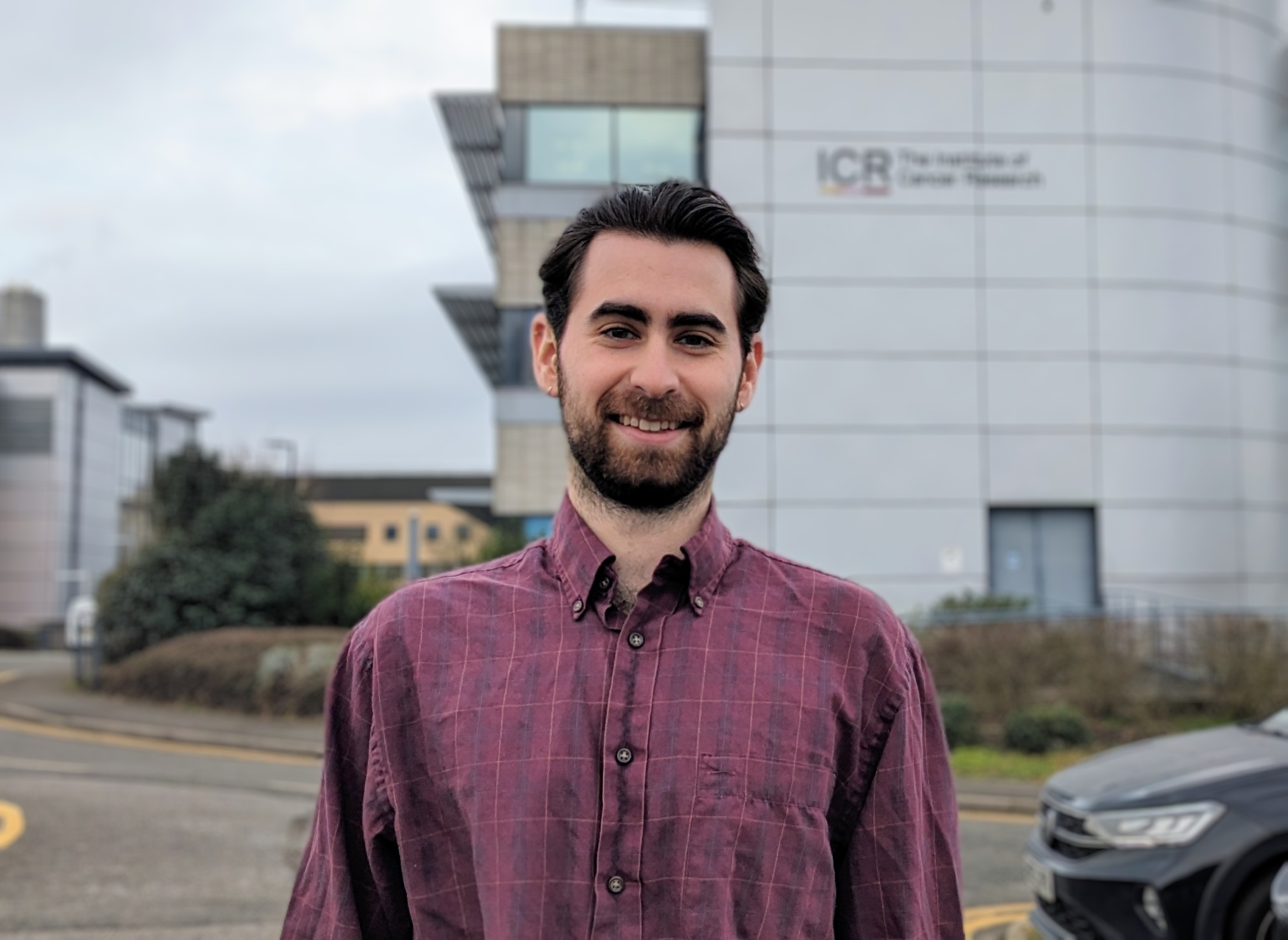
Tal joined the Generations Study research team in 2025 with Professor Garcia-Closas. After professional experience in large-scale automated data pipeline creation and management, he received his MSc in Epidemiology from The London School of Hygiene and Tropical Medicine after completing his thesis on the long-term drivers of interepidemic periods of dengue virus. His work at the ICR centres around creating and managing efficient data pipelines and responsible delivery of data to analysts in alignment with FAIR principles.
June Tam
Clerical Assistant:
Genetics and Epidemiology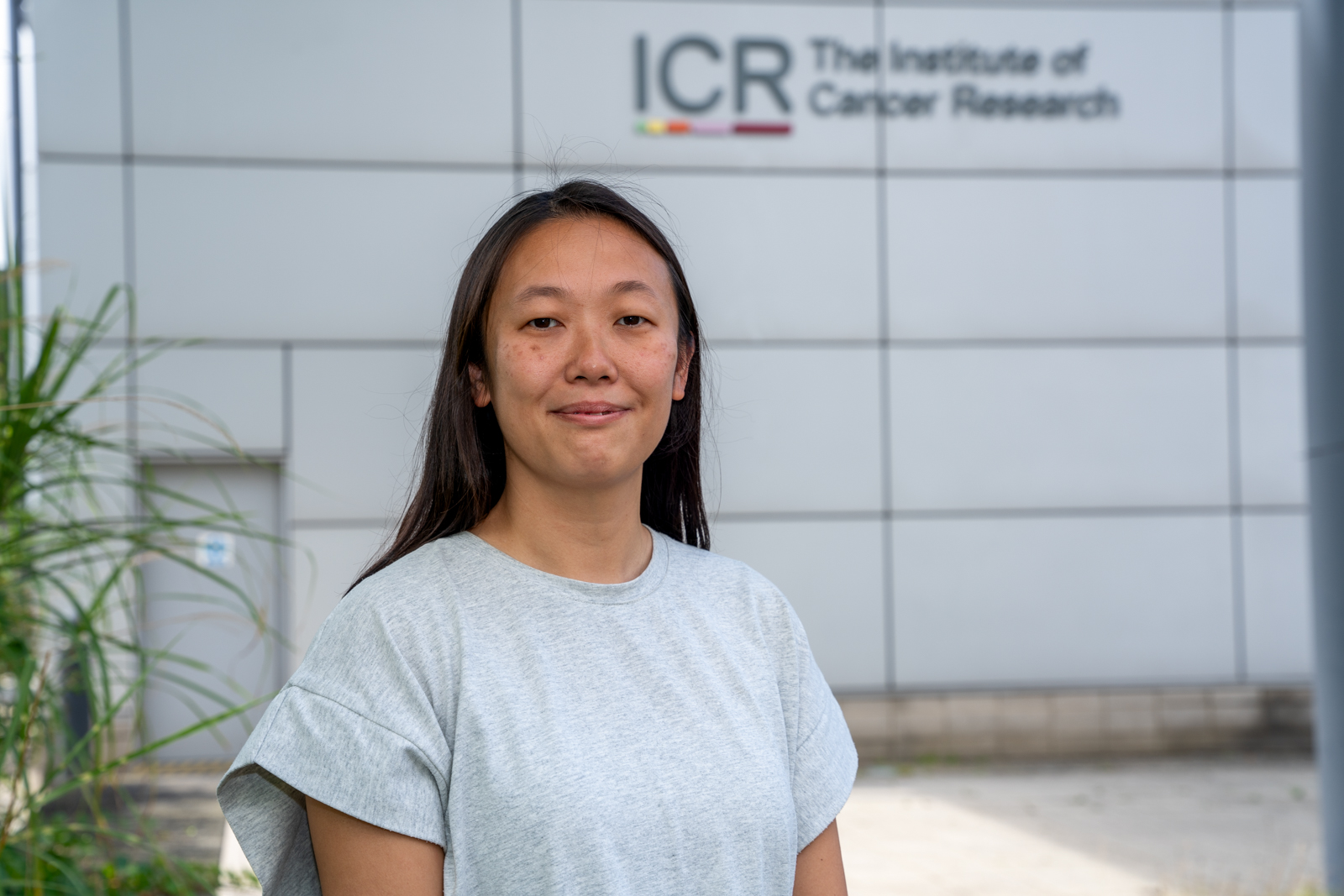
June joined The Generations Study research team in 2023 as the clerical assistant to Professor Berrington and Professor Garcia-Closas. She administers the regulatory documents and ethics submission involved in the Generations Team’s studies as required by the health research authorities, such as national ethics (REC), Royal Marsden Hospital CCR, national confidentiality committee (CAG), NHS England. She also provides administrative support to the Physical Activity Monitor Study.
Dawn Thomas
Senior Team Administrator / Study Coordinating Manager:
Clinical Cancer Epidemiology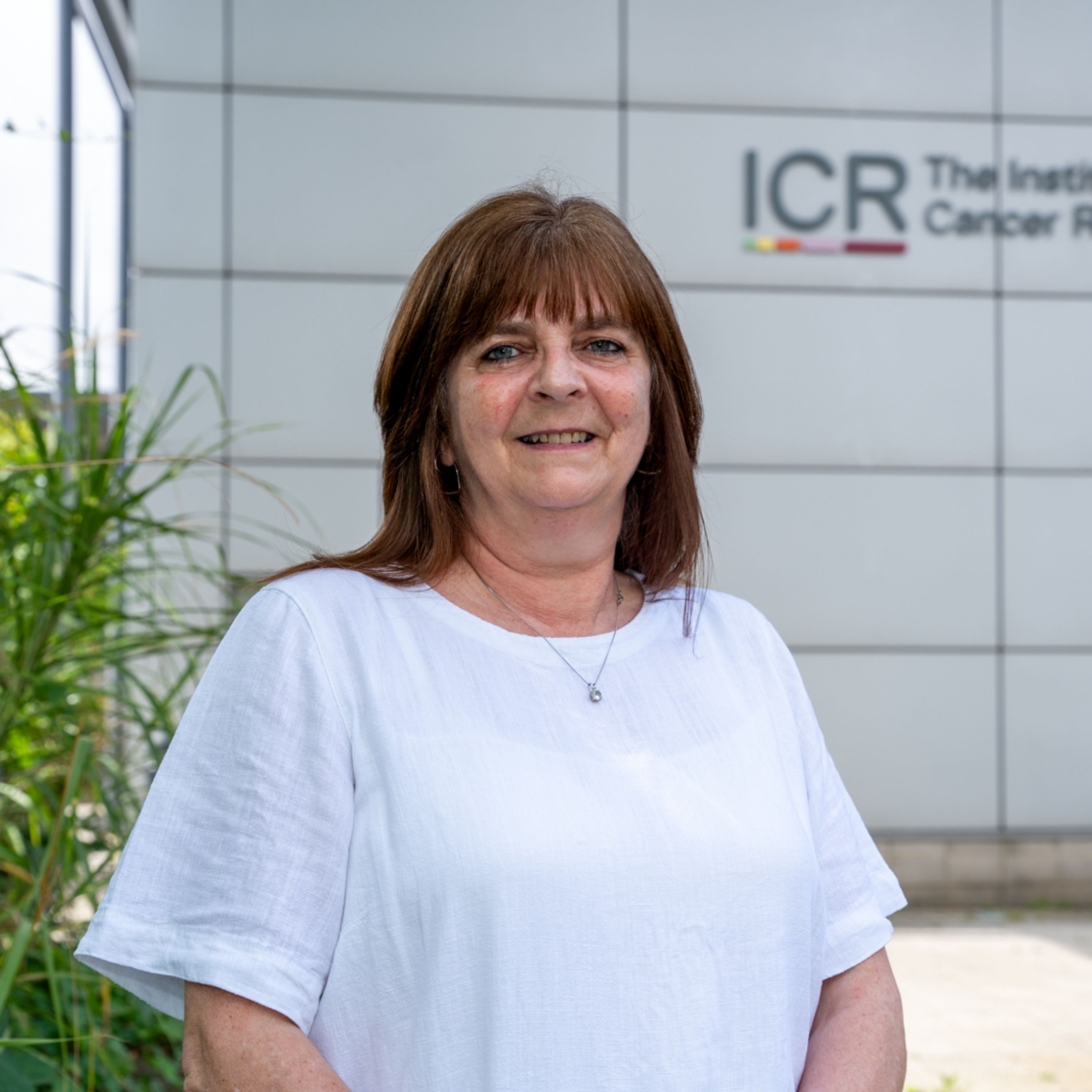
Dawn joined The Generations Study research team in 2004 with previous expertise in office management, recruitment, and communications. She joined to assist managing the study launch and overseeing the recruitment and enrolment of over 100,000 women in the Generations Study. Since then, Dawn has headed the retention of study participants, contributed to managing other research projects within the team, and has assisted with staff training. Currently, Dawn provides administrative support to the senior study scientists and the research team as well as co-ordinating the Study communications and overseeing participant engagement.
Jacqueline Wybrow-Smith
Senior Research Operations:
Clinical Cancer Epidemiology
Jacqueline joined The Generations Study research team in 2022. Prior to joining the study, she has 14 years of experience working in the NHS in acute hospital, education, and primary care settings, both clinically and operationally, and 19 years in technology-based industries, including as a business analyst. At the Generations Study, Jacqueline manages the scientific research operations, helping the Principal Investigators to prioritize scientific tasks, manage budgets, oversee procurement, contracts, grant submissions, and reporting requirements. She is also responsible for the mammography collections project.
Jane Lebihan
Senior Research Administrator:
Integrative Cancer Epidemiology
Jane joined The Generations Study research team in 2010 working as a PA/Research Administrator and is currently working as a Senior Research Administrator. Jane is responsible for the pathology collection of samples and pathology reports. These are requested from hospitals all around the country. Samples and pathology reports have been collected for breast and ovarian cancers. These samples are then processed in our laboratory in order to investigate risk and prognostic factors for these cancers and the data from the pathology reports are used by the study scientists.
